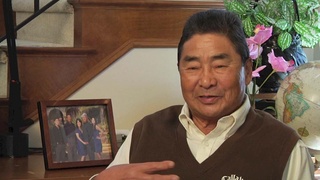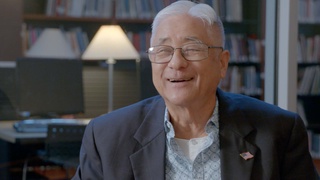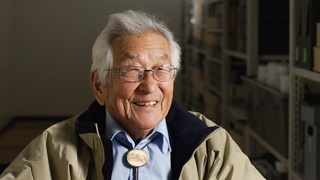Interviews
Grandmother's influence on decision to go to Japan
I think it’s my grandmother that made me come to Japan. As I said, my family couldn’t give me a ticket to travel, so I had to find some way to do that. At university, the foreign exchange program—the study abroad program—was one of the ways I thought I could do that. I’ve always thought I would go to Europe. In high school, I studied German. And as a child, America’s basically a European culture. Now we get a big influx of Latinos and Asians, but back then, it was still basically a European culture. Then, because of the War, too, it was difficult for the Japanese Americans to form their own identity. Being born in America, you think, well you want to be part of the melting pot of America, being an American. So, I thought, when I got the form for the exchange program, since I had studied German, I thought I would go to Heidelberg and put that down as my choice. But when it came to filling that one section, I put Japan for the first time. I said, I think it’s because of my strong grandmother—watching her and my parents as I’m growing up.
Date: November 28, 2003
Location: Saga, Japan
Interviewer: Art Nomura
Contributed by: Art Nomura, Finding Home.
Explore More Videos

On Challenging Institutions
(1938-2020) Japanese American attorney and civil rights activist

Pop and Balls
(1938-2020) Japanese American attorney and civil rights activist

Re-examining Identity
(1941-2018) Japanese Canadian photojournalist and activist





Facing discrimination in America (Japanese)
(b. 1936) Shin-issei welding business owner



Conflicted about immigrating to America (Japanese)
(b. 1925) War bride

Defining "Nikkei"
(1941-2018) Japanese Canadian photojournalist and activist

Feeling prejudice while looking for jobs
(1919 - 2015) Nisei who served in World War II with the 442nd Regimental Combat Team

Invited to teach at Harvard by his boss
(1919 - 2015) Nisei who served in World War II with the 442nd Regimental Combat Team

